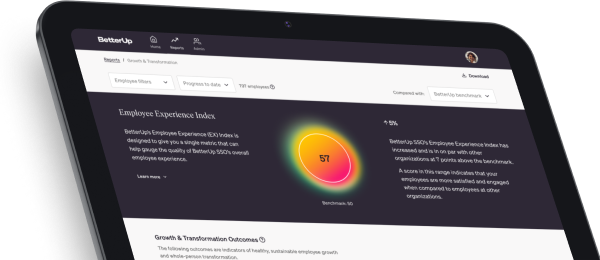At work, you wear many hats. One of the most important ones might be that of a job interviewer.
While interviewing job candidates may not be a role you practice regularly, learning how to conduct an interview effectively has an enormous impact on your day-to-day work. After all, the new team members you decide to bring on board can improve productivity or place extra stress on the organization.
Learning how to interview someone encompasses far more than creating a list of standard queries. It’s a balancing act that requires you to pay attention to non-verbal cues, listen carefully to a candidate’s answers, and ask insightful open-ended questions to judge a person’s experience and know-how effectively.
And it doesn’t stop there. As an interviewer, you’re representing the company culture. An effective interview leaves room for back-and-forth, allowing sought-after candidates to feel comfortable asking you questions and envisioning themselves in the job role.
If all this sounds so overwhelming that you’re not even sure how to start an interview, that’s okay. Like any other new skill, intentional preparation and practice will help you perfect your interviewing techniques and hire the right candidates from the jump.
8 interview tips for interviewers
Learning how to be a good interviewer starts by building a basic flow. Here are eight interviewer tips to structure the interview so you and the interviewee get the most out of the meeting.
1. Prepare ahead of time
You don’t have unlimited time to get to know your interviewee. Specific questions that dissect a candidate’s experience, soft skills, and personality will help you make a more informed hiring decision. This requires proper preparation. Luckily, there’s no shortage of information you can study beforehand, including a candidate’s:
Every document serves a unique purpose. While a candidate’s resume identifies achievements, skills, and work experience, a cover letter or letter of interest demonstrates personality and career objectives.
Be as thorough as possible coming through the application packages before landing on your slate of questions for the role. The more information you can analyze beforehand, the better chance you have of asking creative interview questions that pinpoint the candidate's most valuable assets.
Sometimes, you interview so many candidates during the first round that you may not have enough time to ask them the most detailed questions about their experience. In that case, a candidate’s resume should provide you with the most important information.
Evaluate it side-by-side with the job description, paying attention to aligned skills and valuable work experiences, which will help you formulate targeted interview questions.

2. Introduce yourself
Figuring out how to start an interview as an interviewer requires you to flip the script and focus on yourself. After all, conducting an interview is as much about the candidate getting to know your organization and leadership as it is about you evaluating a potential team member.
Winging your own introduction may poorly reflect the company culture, your background, or your leadership style.
Your introduction should be polished, professional, and provide insight into what it would be like working with you and the organization.
Start with a simple intro, like “Hello, I’m [your name], the [position] at [company name], and I’ll be overseeing the role you’ve applied for.” From there, consider briefly mentioning the following details:
- Your role and responsibilities
- How long you’ve been with the company
- Why you enjoy your role and the company
- Relevant professional interests
- What the candidate can expect from the interview, including topics or format
3. Set the tone with an icebreaker
You’re probably not the only one feeling a little nervous. Candidates have a lot on the line, and many people feel anxious about making a good first impression. An interviewee’s stressed body language or inconsistent eye contact might set off a cognitive bias, waving red flags about their interpersonal skills or communication style.
However, a study from the International Journal of Selection and Assessment shows that interview anxiety doesn’t predict a candidate’s job performance.
To lighten the mood and make everyone feel comfortable, try to start the conversation with a question that isn’t related to the hiring process. Something as simple as “How is your day going?” can ease both you and the candidate into the conversation. Here are some other questions to consider:
- How has your week been so far?
- Have you read any interesting books lately?
- Where are you located?
After some brief chit-chat, you can transition to the topic at hand. “Tell us about yourself” is a common way to start an interview. Here are some alternative questions that similarly target a candidate’s personality and work history:
- I see you’ve always worked in [industry]. What drew you to the field?
- Can you share a little about your career path and what led you here today?
- What aspects of your work do you find most rewarding?
4. Provide more details about the job
After introductions, give a fuller picture of the open role. Although the job description provides a basic outline, this is your chance to add context. Take this time to elaborate on key responsibilities, team dynamics, and how the role fits into the company’s larger purpose and objectives.
The job responsibilities and company expectations shouldn’t be a mystery. Being transparent about what a typical day looks like and the challenges a job candidate will face are important cues for the person across from you. It helps to ask candidates what they already know about the company or position so you know what information to share.
Knowing exactly what you’re looking for will guide their responses about skills and experiences that can help them perform the job effectively, which allows you to assess how they’ll react to potential challenges. Likewise, transparency helps the candidate make a more informed decision about whether the fit is mutual. A win-win for everyone.

5. Sell the job
According to a 2022 Gallup study, a convincing job offer goes far beyond an attractive pay package (although a competitive salary and benefits are important). Prior generations tended to view work as a financial transaction. But today’s employees want fulfilling roles and top-notch work environments.
Here are details you can provide to reflect the company’s employee value proposition:
- Initiatives or policies that support employee well-being and work-life balance
- Company policies about hybrid work or remote work opportunities
- How their strengths will be evaluated and used on the job
- Details about job security and stability
- The company’s core values and vision
- The organization’s commitment to diversity and inclusion
- Opportunities for professional development
- A typical career path for someone in this role
Always remember: the interview is a two-way street. The candidate analyzes you and the company as much as you assess them. Articulating the unique advantages of working for your company can tip the balance in your favor and convince a sought-after candidate to accept a job offer down the road.
6. Ask questions
Every candidate has something unique to offer, and it’s your job to understand how they’ll apply that special skill set and experience to the role. Your questions should include some tailored to each individual, reflecting the specifics of their resume, experiences, and potential contributions to the team.
Prepare a mix of question types to build a well-rounded understanding, including:
The right questions don’t just assess qualifications. They also offer insight into how a candidate thinks, collaborates, and solves problems. A variety of open-ended questions will make it easier to identify candidates who are both competent and complementary to the organization’s values and team objectives.

7. Give the candidate time to ask questions
Opening the floor for questions isn’t more than a courtesy — it’s also an integral part of assessing an applicant.
Pay careful attention to what they ask. Questions help a candidate clarify details to make an informed decision, but they also reveal priorities and what they value in a job, which can give you a window into how well they’ll fit in with the team. Additionally, thoughtful questions indicate that an applicant is engaged and seriously considering the role.
8. Provide timelines
Discussing timelines and next steps sets expectations and prompts a smooth transition for the chosen candidate. Clearly outline what comes next in the hiring process. It will help candidates manage their schedules and develop realistic expectations, reflecting goodwill, trust, and respect. Here are valuable points of information you might provide:
- When they can expect to hear back
- Timelines for filling the position
- Additional steps in the hiring process, like a take-home assignment
- How quickly you expect a new hire to start
Be careful not to create false expectations to save face. If you decide during the interview that it’s not a fit, simply let the candidate know when they can expect to hear back.
Interview do’s and don'ts
Building a rapport during the interview process is about asking the right questions and creating a deliberate first impression. Here are some quick tips to ensure you take advantage of the interview and choose the right candidate:
- DO bring a notebook to jot down important details that set each applicant apart from one another.
- DO dress appropriately according to the company’s dress code and expectations, even if it’s a video call.
- DO be punctual (or even a little early) to communicate respect for the candidate’s time and demonstrate expectations about time management and organization.
- DON’T interrupt your candidate’s answers. This disrupts their flow, cuts off important information, and shows a lack of courtesy.
- DON’T arrive unprepared without reviewing their information or structuring the interview, as it shows a lack of engagement and organization that reflects poorly on your management style.
- DON’T multitask during the interview (like taking a phone call or opening an email). This sends a message that you’re not fully invested in the candidate.

Bring exceptional candidates on board
Being invited to give an interview is a milestone in your career and professional growth. While learning how to conduct an interview may be daunting at first, carefully following this straightforward process will help you interview like a seasoned pro, pick out the right candidates, and extend a job offer to a valuable new member of the team.




-1.png)






